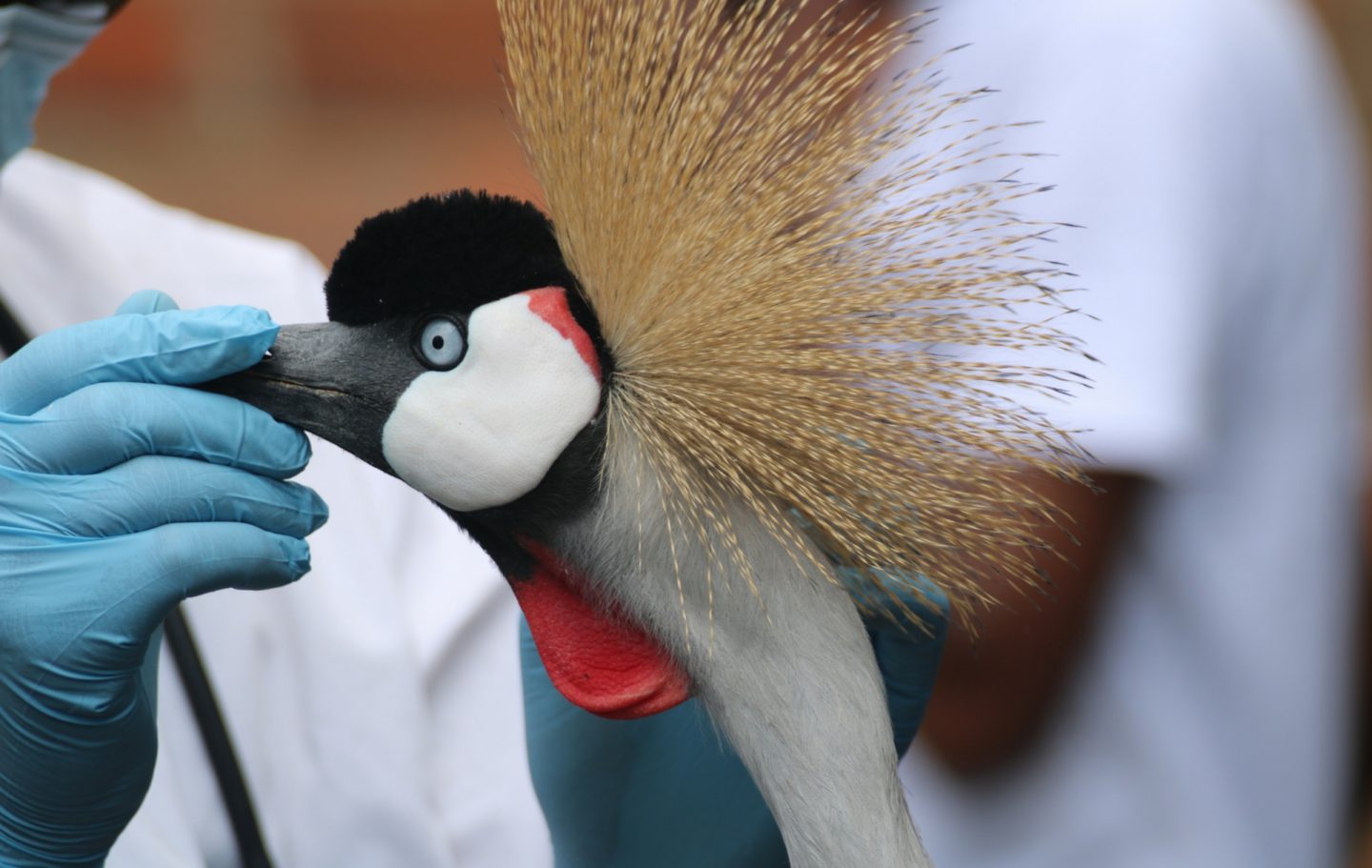
Endangered
Description
Standing at over a metre tall, the large yet elegant grey crowned crane graces many of Africa’s wetlands and is the national bird of Uganda. Its predominately grey plumage contrasts with their black and white wings, a crest of golden feathers, and a bright red throat. Males tend to be marginally larger than females but are otherwise indistinguishable. There are two subspecies: the East African crowned crane and the South African crowned crane, the former being the more abundant of the two.
Lifespan
Up to 22 years in the wild.
Population and status
The grey crowned crane is listed as endangered due to threats such as habitat loss and the illegal removal of the birds and their eggs from the wild. These actions have driven very rapid declines during the past 3 generations (45 years). The current estimated population has declined from 100,000 in 1985 to less than 33,500. Once plentiful in Rwanda, there are now fewer than 500 individuals left.
Habitat and range
The grey crowned crane resides in eastern and southern Africa within a mixture of wetland and open grassland habitats, including flood-plains, marshes, rivers and savannah, taking to tall trees to nest when night falls.
Diet
This species is omnivorous, mainly foraging for grass, seeds, insects, small vertebrates, eggs of aquatic animals, small fish and invertebrates. The grey crowned crane co-opts with large herbivores who flush out insects as they walk, enabling the cranes to eat them.
Threats
The species principal threat is habitat loss and degradation to their wetland breeding areas. Further threats to the grey crowned crane include the illegal removal of the birds and their eggs from the wild, where they are kept in captivity by wealthy families or hotels as they are believed to be a symbol of wealth and longevity to those who own them.
Conservation
The grey crowned crane is protected by law in Kenya, South Africa, Uganda and Zimbabwe, and community-based wetland projects have been undertaken in all three countries with African crane and wetland training being carried out in Botswana.
Tusk works with Rwanda Wildlife Conservation Association (RWCA), who are working towards combatting the threats faced by the cranes, with a focus on the illegal trade.
